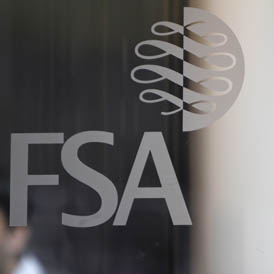Millions could receive PPI compensation
The High Court has ruled against the British Bankers’ Association’s challenge over new FSA regulations controlling the selling of payment protection insurance (PPI).
A High Court action brought by British banks contesting the new regulations surrounding payment protection insurance (PPI) has been rejected. Despite the British Bankers’ Association (BBA) claiming that new regulations would cost the industry £4.5 billion a year, Mr Justice Ouseley ruled against them and upheld the implementation of the suggestions made in December of last year.
The Financial Services Authourity (FSA) and the Financial Ombudsman Service issued guidance over PPI, to control the selling of the product to borrowers, ensuring that consumers are treated fairly when buying PPI and when they are complaining about being “mis-sold” it. PPI policies typically offer to cover loan or debt repayments in the event of the policy holder suffering serious illness or redundancy.

The new regulations require that purchasers are taken through the policy in detail as well as providing them with written documentation and making it obvious that the insurance was optional. However, the suggestions have retrospective effect as well, meaning that Banks will be liable for any compensation actions brought from customers who were mis-sold policies in the past. The even greater burden on the banks will be the FSA insistance that not only must they deal with complaints raised by consumers but that it is the bank’s responsibility to contact people they may have mis-sold a policy to.
Payment Protection Insurance is taken out against a loan, mortgage, credit card or credit agreements with retailers and is an agreed monthly sum to cover a percentage of a payment due on any agreement if you are not able to work through an accident, sickness or redundancy. Just how much the individual policy covers can vary, from 24 months full payment of mortgage obligations down to minimum payments on store cards.
BBA reaction
However, the British Banking Association admitted that they were analysing the judgment carefully before making their next step and will decide “whether it would be appropriate to apply for permission to appeal.”
Before the High Court decision complaints made about PPI were put on hold until the judgment, but despite the decision in the High Court the BBA released this statement: “Any complaints that are directly affected by the judicial review and therefore can not be decided will continue to be placed on hold until the next steps have been decided.”
FSA stand firm
This BBA intent to appeal was also noted on the FSA website. In reaction to the result the FSA declared they would not issue a waiver and firms will need to deal with complaints where possible including putting the onus on banks to let customers know they can refer their complaint to the ombudsman. Failure to do this, they say, “may result in enforcement action.”
The authority detailed how since their regulation of the sector began in 2005, banks have not successfully dealt with the issue of mis-sold PPI:
“There have been more than 1.5 million complaints made about PPI since the Financial Services Authority (FSA) took over regulation of it in 2005. On average, firms have rejected around 60 percent of the complaints made to them, but some rejected almost all of them. However, the vast majority of complaints referred to the Financial Ombudsman Service (the Ombudsman) are found in the consumer’s favour.”